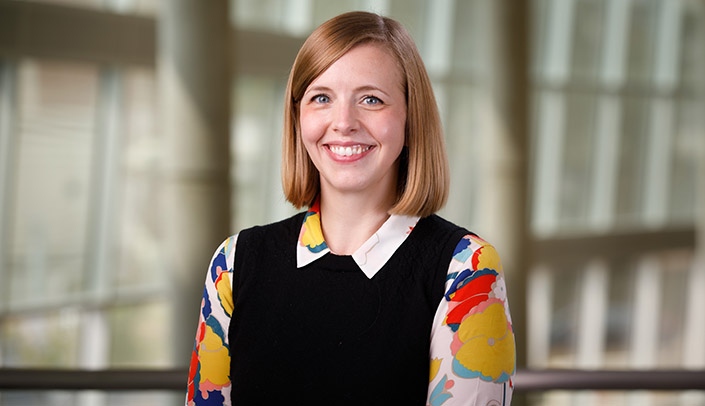Melissa Teply, MD, knows many practitioners go into health care wanting to keep people healthy and to save lives.
But once in practice, new doctors frequently care for patients with serious illnesses that will eventually take their life in spite of the best medical efforts. Death and dying, Dr. Teply said, are realities that young physicians soon face.
Yet in their medical training, doctors often don’t gain the skills for handling some of the most delicate and difficult situations they will experience with patients and their families.
The UNMC Division of Geriatrics, Gerontology and Palliative Medicine offers a fellowship to give more intensive training on providing extra support to patients and families navigating the overwhelming course of a serious illness.
The Hospice and Palliative Medicine Fellowship Program is structured to give participants clinical experience with patients facing a serious illness and death, and a better understanding of the transitions around the end of life. It gives the fellows a background working through the systems standing before those patients, including hospice care.
Critical among the skills taught, Dr. Teply said, is communication – deliberate lessons in having those difficult conversations.
The one-year fellowship accepts residency graduates from such areas as family medicine, internal medicine, pediatrics, emergency medicine, psychiatry, anesthesiology, neurology, physical medicine and rehab, surgery and recently added obstetrics and gynecology.
Dr. Teply, assistant professor in the division and director of the fellowship, is familiar with two almost opposite reactions people have to palliative medicine. When people hear Dr. Teply’s area of practice, they’ll sometimes tell her: That must be so hard. But people in the practice often see it as a calling.
Said Dr. Teply, “it is an extreme honor and privilege to be able to walk into those most private and most vulnerable spaces and help however we can.”
